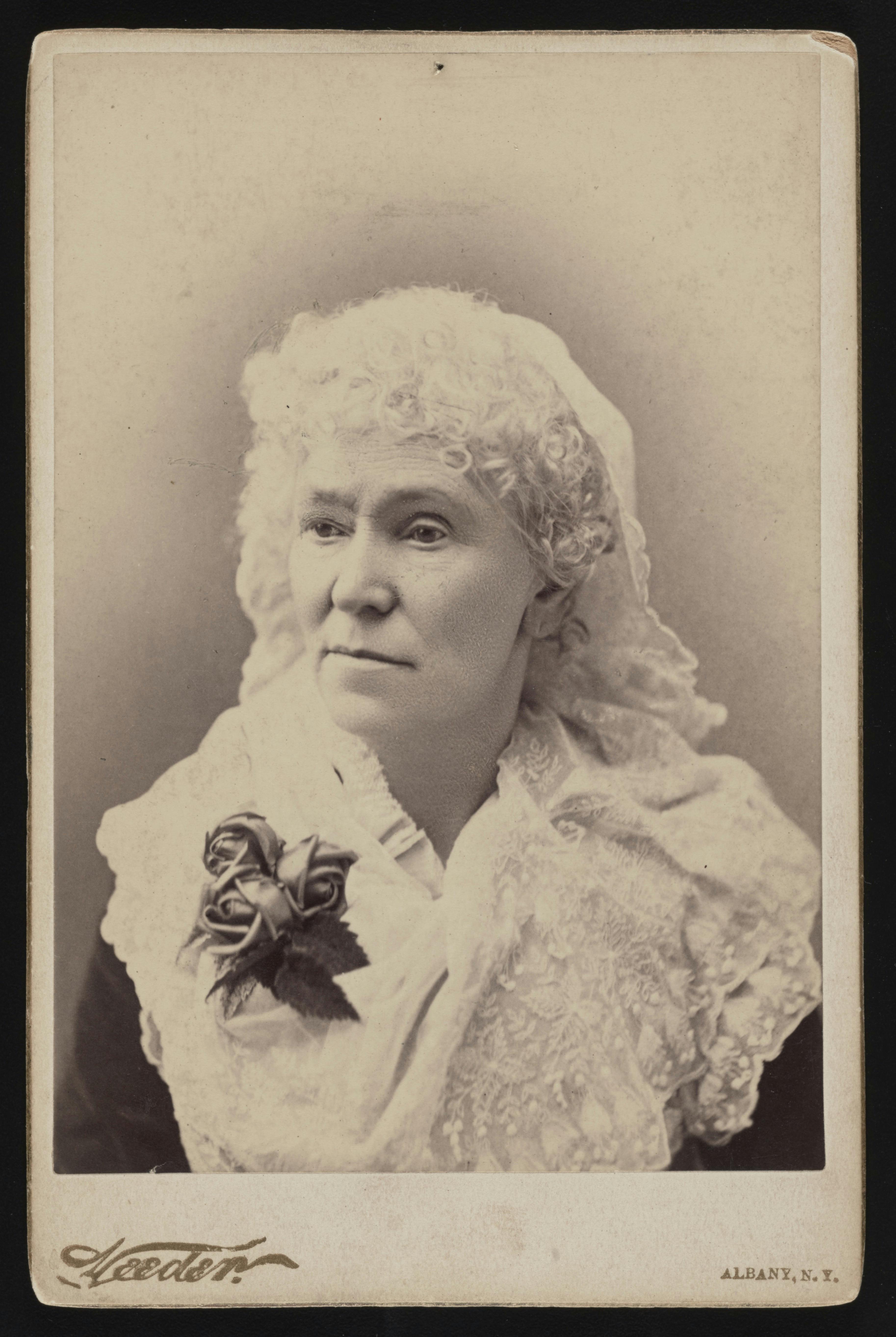In the classic 1939 film The Wizard of Oz, Dorothy is asked, “Are you a good witch or a bad witch?” These two opposing archetypes, immortalized by L. Frank Baum's children’s story published decades earlier, have a little-known feminist history explored in a recent installation in our Joyce B. Cowin niche on the 4th floor. Baum drew inspiration for the tale from his mother-in-law, Matilda Joslyn Gage. She was an ardent suffragist, abolitionist, and advocate for Indigenous rights, who held more radical views than many of her contemporaries. Gage’s writing explored the historical suppression of women’s power and intellect—including the history of the witch archetype.

Matilda Joslyn Gage, 1876, photograph, Library of Congress
Born in Cicero, New York, in 1826, Gage is often remembered for her collaborations with fellow suffragists Susan B. Anthony and Elizabeth Cady Stanton. The trio co-founded the National Woman Suffrage Association in 1869 and co-authored the multiple volume History of Woman Suffrage first published in 1881. However, Gage publicly broke with Stanton and Anthony in 1890 after the latter two suffrage leaders welcomed conservative Christian women into their coalition. Gage called for a new, more “progressive” suffrage organization. She railed against the influence of religion within the suffrage movement and called "the Church” the “ever most unscrupulous enemy of freedom.”
Gage identified the witch stigma as a historical source of women’s oppression through religious institutions in her 1893 book, Woman, Church & State. As she interpreted the history of Christianity, “The church degraded woman by destroying her self-respect, and teaching her to feel consciousness of guilt in the very fact of her existence.” Moreover, she argued that “the extreme wickedness of woman” was “taught as a cardinal doctrine” with “witchcraft being regarded as [woman’s] strongest weapon” against Christian society. Gage decried these beliefs and pointed to the persecution of witchcraft as a form of physical violence and a cause of psychological and spiritual harm targeting women: “It is impossible for us at the present day to conceive the awful horror falling upon a family into which an accusation of witchcraft had come. Not alone the shame and disgrace of such a charge; the terrors of a violent death under the most painful form; the sudden hurling of the family from ease and affluence to the most abject poverty; but above all the belief that unending torment by fire pursued the lost soul through eternity, made a combination of terrors appalling to the stoutest heart.”
